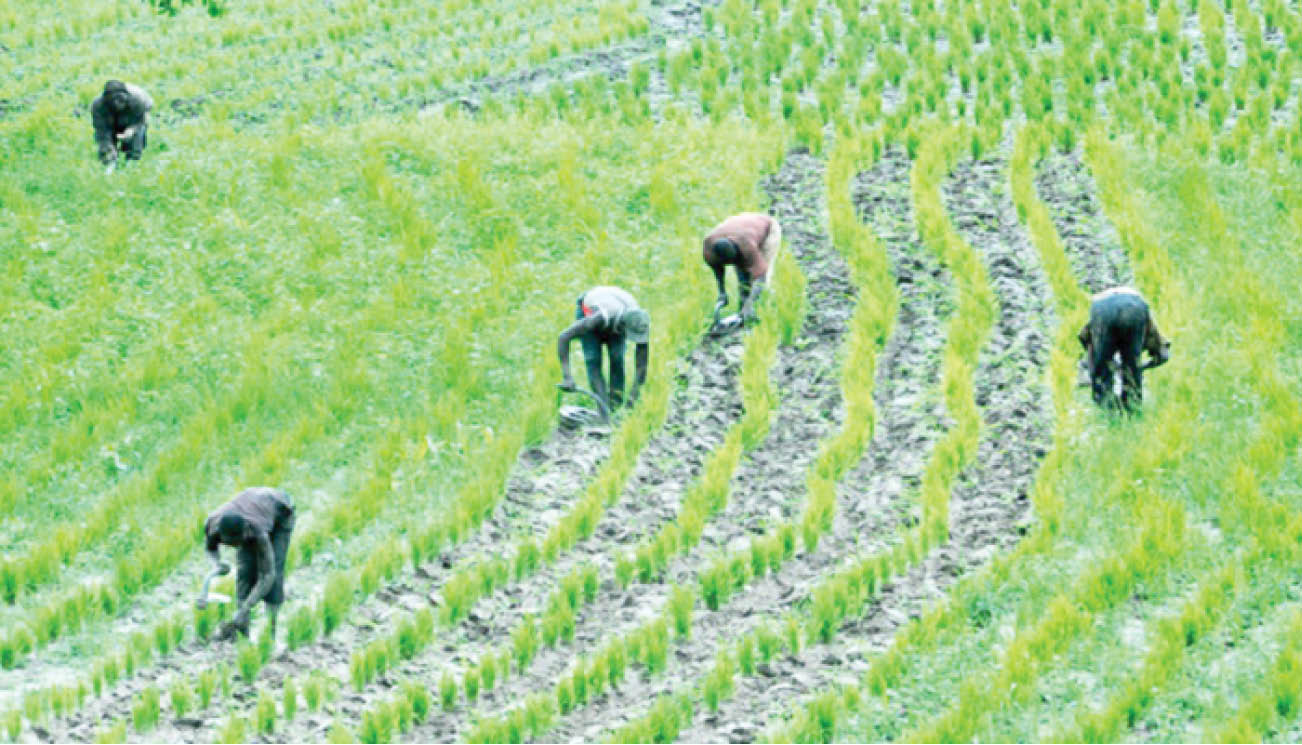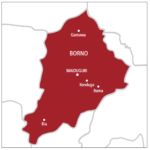Lack of vocational and professional skills limits the chances of people owning businesses.
To ameliorate the predicament, the National Directorate of Employment (NDE), through its Rural Employment Promotion Department, trained youths from diverse backgrounds on sustainable agricultural schemes in Borno State.
- PODCAST: The Supplementary Budget: Who Benefits Most?
- Hushpuppi: US Court lists DCP Kyari among wanted suspects
The beneficiaries were given startup grants to establish small agricultural businesses like poultry, fish farming, breeding and rearing animals and selling vegetables.
Four months after the training, the directorate assembled the beneficiaries to hear their feedback and in order to further assess the scheme.
Narrating his story, Mohammed Ma’aji said, “I was introduced into duck rearing by a friend who also helped me get a special breed of Indian ducks which are easy to handle and are greatly sought when they mature.”
Ma’aji bought three ducklings for N5,000 each, as well as duck feeds and obtained a feeds formula for N20,000.
He said, “These ducks are typically very easy to rear and eat any food consumed by humans, as well as grasses as appetisers. They reach their full body size at seven weeks and could weigh up to 17kg. I was advised not to allow them to reach 17kg because mortality is high at that size. By the time each weighs 14kg I begin to look for buyers. I once sold three ducks for N190,000.”
Another entrepreneur, Baa Mamman Mohammed, said he went into poultry and started with 75 chicks and that when they reached maturity they were hit by a disease and only 35 survived.
He said, “I took the remaining 35 to the vegetable market and sold them. I was impressed with a customer who bought nine and asked him to introduce me to the type of farming he was into and he took me to his attarugu (Scotch bonnet) farm in Zabarmari. I acquired a farm, dug a well and bought pesticides and fertilisers before I planted the seedlings. I started harvesting two bags after maturity and sold each for N4,000. Later the yield increased and I harvested 20 bags. Farming is profitable; I urge unemployed youths to engage in farming.”
Lucy Sule on her part said she started a poultry with 50 chicks and that when they grew to maturity she sold them and used the profit to obtain facilities for fish farming.
Ms Sule said, “I want to switch to fingerlings production which I am more interested in.”
Meanwhile, the NDE Coordinator, Borno State, Mrs Mairo Aliyu said the post-sustainable agricultural development training scheme was a one-week training on practical application of government policies and harnessing such opportunities to further create employment and promote high productivity among beneficiaries.
Mrs Aliyu said, “We sensitise the beneficiaries on how to access loans and improve their businesses, as well as how to market and store their products.”
The coordinator further said the beneficiaries that were into fish farming were further trained on how to process their products to meet international standards, noting that fish farmers must use modern smoking facilities in processing fish to meet the requirement for export.
She added that the essence was to encourage youths to accept agriculture as means of livelihood and to remove drudgery from the practice of agriculture and enhance the quality of life for farmers and society as a whole.

 Join Daily Trust WhatsApp Community For Quick Access To News and Happenings Around You.
Join Daily Trust WhatsApp Community For Quick Access To News and Happenings Around You.

